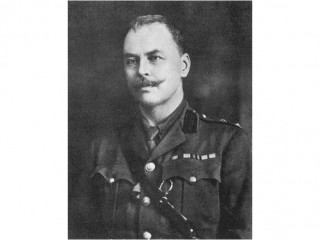
Ronald Ross biography
Date of birth : 1857-05-13
Date of death : 1932-09-16
Birthplace : Almora, India
Nationality : English
Category : Science and Technology
Last modified : 2011-12-16
Credited as : Doctor, work on malaria, Nobel laureate
5 votes so far
His discovery of the malarial parasite in the gastrointestinal tract of the Anopheles mosquito led to the realisation that malaria was transmitted by Anopheles, and laid the foundation for combating the disease.
Ross established the link between mosquitoes and malaria, and won the Nobel Prize in Medicine in 1902. In researching the disease, he allowed Anopheles mosquitoes to feed on a malaria-infected patient, then dissected the insects. On 20 August 1897 he found the the plasmodium parasite in the mosquitoes' gastrointestinal tract, establishing that as Alphonse Laveran had projected, the parasite carries malaria.
The following year he showed that mosquitoes that fed on infected birds carried avian malaria. His early research and groundbreaking discovery were conducted largely under the mentorship of Scottish physician Patrick Manson (1884-1922), whose contribution was not noted by the Nobel committee.
Ross spent the rest of his career studying Anopheles, and made numerous trips to advise malaria control efforts in Egypt, Greece, Mauritius, and Panama. He was considered the world's foremost authority on malaria in mosquitoes, but he grew dismayed over the government's unwillingness to expend relatively small sums of money to prevent future epidemics, and over the lack of financial recompense for his work.
He was the namesake and founding administrator of the Ross Institute and Hospital for Tropical Diseases, which was opened in 1926 and has since been absorbed into the University of London, and for twenty years he edited the journal Science Progress. In addition to his medical work, Ross was also a respected mathematician and a successful novelist and poet.
Author of books:
-The Child of Ocean (1889, novel)
-The Spirit of Storm (1896, novel)
-Algebra of Space (1901, mathematics)
-The Prevention of Malaria (1910, non-fiction)
-Psychologies (1919, poetry)
-The Revels of Orsera (1920, novel)
-Memoirs, with A Full Account of the Great Malaria Problem and Its Solution (1923, memoirs)
-Studies on Malaria (1928, non-fiction)
-Poems (1928, poetry)
-Fables and Satires (1930, poetry)
-In Exile (1931, poetry)
-The Great Malaria Problem and Its Solution (1988, non-fiction; posthumous; edited from memoirs)
















